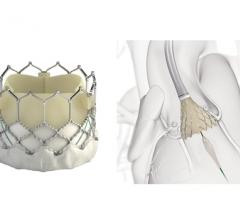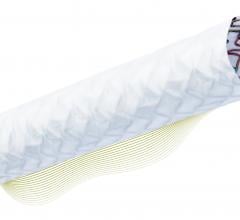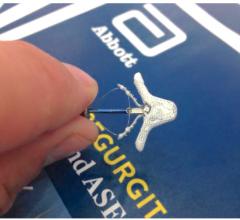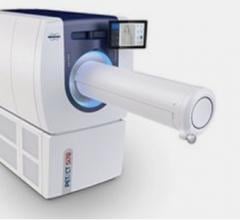The first randomized study to compare general versus local anesthesia during transcatheter aortic valve replacement (TAVR) in patients with intermediate to high surgical risk found local anesthesia to be both safe and effective. In addition, the study found that a current generation balloon-expandable valve had similar outcomes to a current generation self-expanding one.
Philippe Genereux, M.D., co-director of the structural heart program at the Gagnon Cardiovascular Institute at ...
September 27, 2018 — Biotronik recently announced U.S. Food and Drug Administration (FDA) approval of the PK Papyrus ...
Providing exceptional cardiovascular care for patients to achieve the best possible outcomes is the number one goal for ...
Rami Doukky, M.D., professor of medicine, preventative medicine and radiology, and chief of the Division of Cardiology ...

Advances in the technology of wearable cardiac monitors are improving both the experience of the patient and the ...
Advancements in healthcare technology, particularly in the surgery category, have led to an increasing adoption of gamma cameras. Further, the numerous developments in radionucleotides are anticipated to favor the adoption of solid state cameras and mobile gamma cameras. These findings are presented in a new research study on the global mobile gamma cameras market by Future Market Insights (FMI).
Cardiac positron emission tomography (PET) is growing in popularity among cardiologists because it provides the ability ...
William Abraham, M.D., FACC, professor of medicine and director of the division of cardiovascular medicine, The Ohio ...
Ron Waksman, M.D., associate director of the division of cardiology and director of cardiovascular research and advanced ...
Patients with heart failure and secondary mitral regurgitation (MR) who remained symptomatic despite maximally tolerated medical therapy demonstrated reduced rates of hospitalizations and death after being treated with the transcatheter MitraClip device. Patients in the randomized COAPT trial also showed improved quality-of-life and functional capacity.
When performing radiofrequency (RF) ablation to treat cardiac arrhythmia, medical professionals must balance the safety ...
September 26, 2018 — Bruker recently announced the introduction of the new preclinical PET/CT Si78 scanner for whole ...
Positive 12-month data from the late-breaking IMPERIAL trial was presented at the 2018 Transcatheter Cardiovascular Therapeutics (TCT) conference. This is the first head-to-head drug-eluting stent trial in the superficial femoral artery (SFA). Results were also presented at the annual Cardiovascular and Interventional Radiological Society of Europe (CIRSE) congress in Lisbon, Portugal. The clinical findings will be published in The Lancet.
September 25, 2018 – New data demonstrate the correlation between the presence of non-flow-limiting, non-intervened-upon ...
Change Healthcare Cardiology Hemodynamics is an integrated hemodynamic monitoring system for monitoring vital signs and ...
Suboptimal cardiovascular ultrasound imaging can produce transthoracic echocardiograms (TTEs) that are inconclusive ...
Orchestra BioMed Inc. announced the three-year clinical results from its Sirolimus Angioplasty Balloon for In-Stent Restenosis (SABRE) Trial at the Transcatheter Cardiovascular Therapeutics (TCT) 2018, Sept. 21-25 in San Diego. Results demonstrated excellent efficacy and safety performance of the Virtue Sirolimus-Eluting Balloon (SEB) in a very challenging patient population with predominantly long, diffuse restenosis lesions within stents that had been implanted an average of nearly four years prior to the study enrollment.
Five-month-old Jack Palmer is home with his family in Kansas City after undergoing an extremely rare heart-lung transplant at St. Louis Children’s and Washington University Heart Center in May. At five months of age, Jack was the youngest patient to undergo this surgery successfully in more than a decade.


 September 28, 2018
September 28, 2018
















